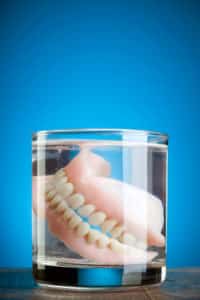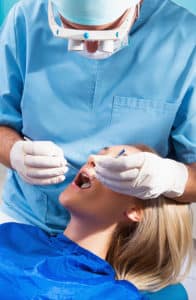
Whether you have just gotten dentures the first time, or you’re an old pro who has had them for years, here are a few things to keep in mind when it comes to brushing your dentures.
Dentures Are Not as Durable
Dentures, for all the wonderful care and craftsmanship put into them, simply are not as durable as your natural teeth. This is due to a few reasons. For one thing, few things can adequately mimic the enamel of your teeth. Artificial materials (such as those used to create your dentures) cannot absorb nutrients and minerals the way your teeth do.
Your teeth, for example, absorb fluoride to help strengthen the enamel. Dentures will not do this. As such, when you brush your dentures, you should take care to use a brush with soft bristles. You want to do everything you can to avoid scratching or damaging the dentures.
Dentures Are Easier to Manipulate
A positive aspect of brushing your dentures is that it may be easier for you. Your natural teeth are fastened to your gum tissue, and it can be tricky reaching into some of the nooks and crevices. In contrast, because you can remove your dentures, it is easy to turn them and adjust them to the proper angle. You won’t have to deal with fighting to reach behind the very denture in the very back like you may have with your wisdom teeth.
Brushing your dentures is different than brushing your natural teeth. Still, with time, you will be just as comfortable doing it as you are cleaning your natural teeth.

 If you’ve had any type of oral surgery, it’s likely that your mouth is going to be a little sore. We recommend that you be very careful about what you eat in the first 24 hours after you leave our office. That’s because your mouth is very sensitive after your surgery. You may actually experience some bleeding after surgery, which is normal in most cases.
If you’ve had any type of oral surgery, it’s likely that your mouth is going to be a little sore. We recommend that you be very careful about what you eat in the first 24 hours after you leave our office. That’s because your mouth is very sensitive after your surgery. You may actually experience some bleeding after surgery, which is normal in most cases.